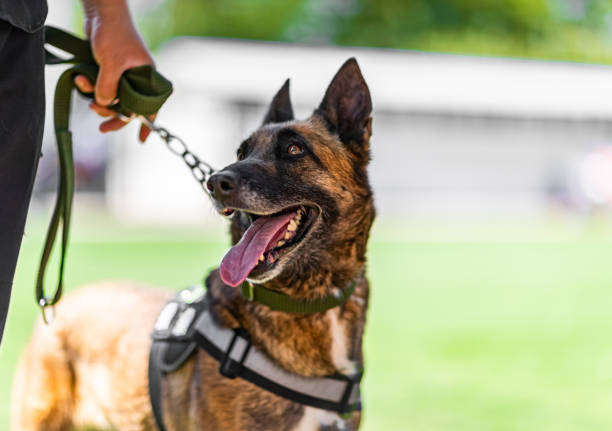Key Points to Avoid in Dog Obedience Training
Dog obedience training forms the foundation of a healthy relationship between you and your canine companion. However, many pet owners unknowingly make critical mistakes that can hinder their dog's progress and even damage their bond. Understanding what not to do during training sessions is just as important as learning proper techniques. These common pitfalls can lead to confusion, behavioral issues, and frustration for both dogs and their owners, making the training process longer and more challenging than necessary.

Common Dog Training Mistakes That Sabotage Success
One of the most damaging mistakes in dog training is inconsistency with commands and expectations. When family members use different words for the same behavior or enforce rules differently, dogs become confused and struggle to understand what’s expected of them. For example, if one person says “down” while another says “lie down,” your dog may not recognize these as the same command.
Timing also plays a crucial role in effective training. Delayed corrections or rewards lose their meaning because dogs live in the moment and cannot connect consequences to actions that occurred minutes earlier. Additionally, using punishment-based methods or harsh corrections often backfires, creating fear and anxiety rather than genuine understanding and cooperation.
Why Professional Dog Training Services Make a Difference
Professional dog training services offer structured approaches that avoid common amateur mistakes. Certified trainers understand canine psychology and can identify specific behavioral triggers that owners might miss. They provide consistent methodology and help establish clear communication patterns between dogs and their families.
Working with professionals also prevents the development of bad habits that are harder to correct later. Many dog owners inadvertently reinforce unwanted behaviors by giving attention to them, even negative attention. Professional trainers teach owners how to redirect energy positively and maintain consistency throughout the training process.
Essential Puppy Training Foundations in Your Area
Early puppy training sets the stage for lifelong obedience, but starting with the wrong approach can create lasting problems. Many people make the mistake of waiting too long to begin training, missing the critical socialization period between 3 and 14 weeks of age. During this window, puppies are most receptive to new experiences and learning.
Another common error is overwhelming puppies with too much information at once. Effective puppy training focuses on one concept at a time, building gradually toward more complex behaviors. Local puppy training classes provide controlled environments where young dogs can learn alongside peers while receiving professional guidance tailored to their developmental stage.
Avoiding Counterproductive Dog Obedience Training Methods
Traditional dominance-based training methods often create more problems than they solve. The outdated “alpha dog” theory has been debunked by modern animal behavior research, yet some training approaches still rely on intimidation and forceful techniques. These methods can increase aggression, reduce trust, and make dogs less responsive to genuine leadership.
Instead of focusing on dominance, effective dog obedience training emphasizes positive reinforcement and clear communication. Dogs respond better to consistent rewards for good behavior rather than punishment for mistakes. Building trust and cooperation creates a more reliable and happy working relationship between dogs and their owners.
Understanding When Professional Intervention Is Necessary
Some behavioral issues require professional assessment and intervention beyond basic training mistakes. Resource guarding, severe separation anxiety, or aggressive tendencies need specialized attention from certified animal behaviorists or experienced trainers. Attempting to handle serious behavioral problems without proper knowledge can worsen the situation and potentially create safety risks.
Recognizing the limitations of amateur training efforts is crucial for both dog and owner safety. Professional dog trainers can assess whether behavioral issues stem from training mistakes, medical problems, or deeper psychological factors that require different approaches.
| Training Service Type | Typical Provider | Cost Range | Session Duration |
|---|---|---|---|
| Group Puppy Classes | PetSmart, Petco | $100-200 | 4-6 weeks |
| Private Training Sessions | Local Certified Trainers | $75-150/session | 1 hour |
| Intensive Boot Camp Programs | Specialized Training Facilities | $1,500-3,000 | 2-4 weeks |
| Behavioral Consultation | Certified Animal Behaviorists | $150-300/session | 1-2 hours |
Prices, rates, or cost estimates mentioned in this article are based on the latest available information but may change over time. Independent research is advised before making financial decisions.
Building Long-Term Success Through Proper Training Approach
Successful dog training requires patience, consistency, and realistic expectations. Many owners expect immediate results and become frustrated when progress seems slow. Dogs learn at different rates, and some breeds or individual personalities require more time to master certain concepts.
The key to avoiding training pitfalls lies in understanding that dog training is an ongoing process rather than a quick fix. Regular practice, positive reinforcement, and consistent expectations create lasting behavioral changes. When owners avoid common mistakes and focus on building trust and communication, both dogs and their families enjoy more harmonious relationships and better long-term outcomes.
Remember that every dog is unique, and what works for one may not work for another. Flexibility in approach, combined with fundamental principles of positive reinforcement and clear communication, provides the best foundation for successful training experiences that strengthen the human-animal bond while achieving desired behavioral goals.




